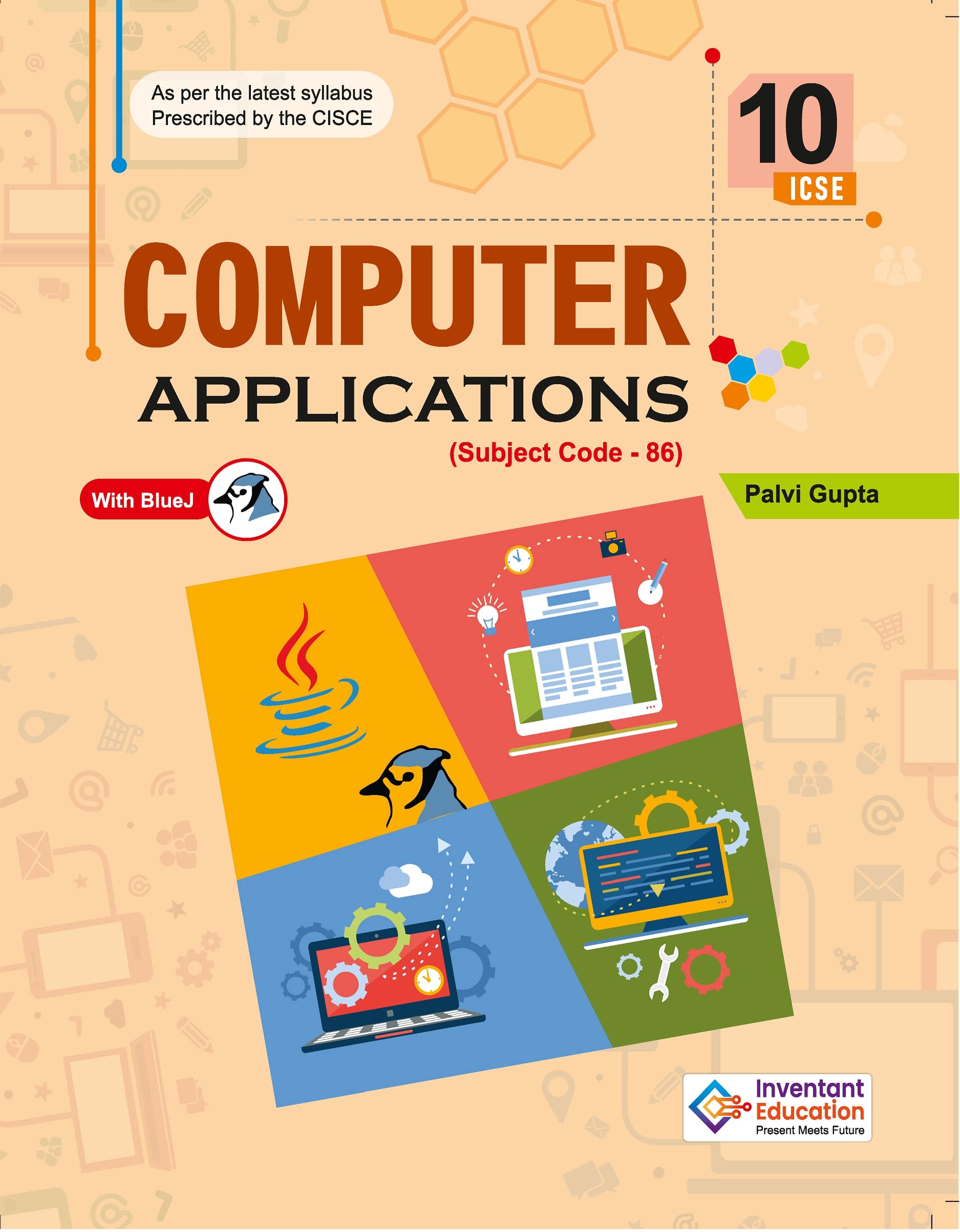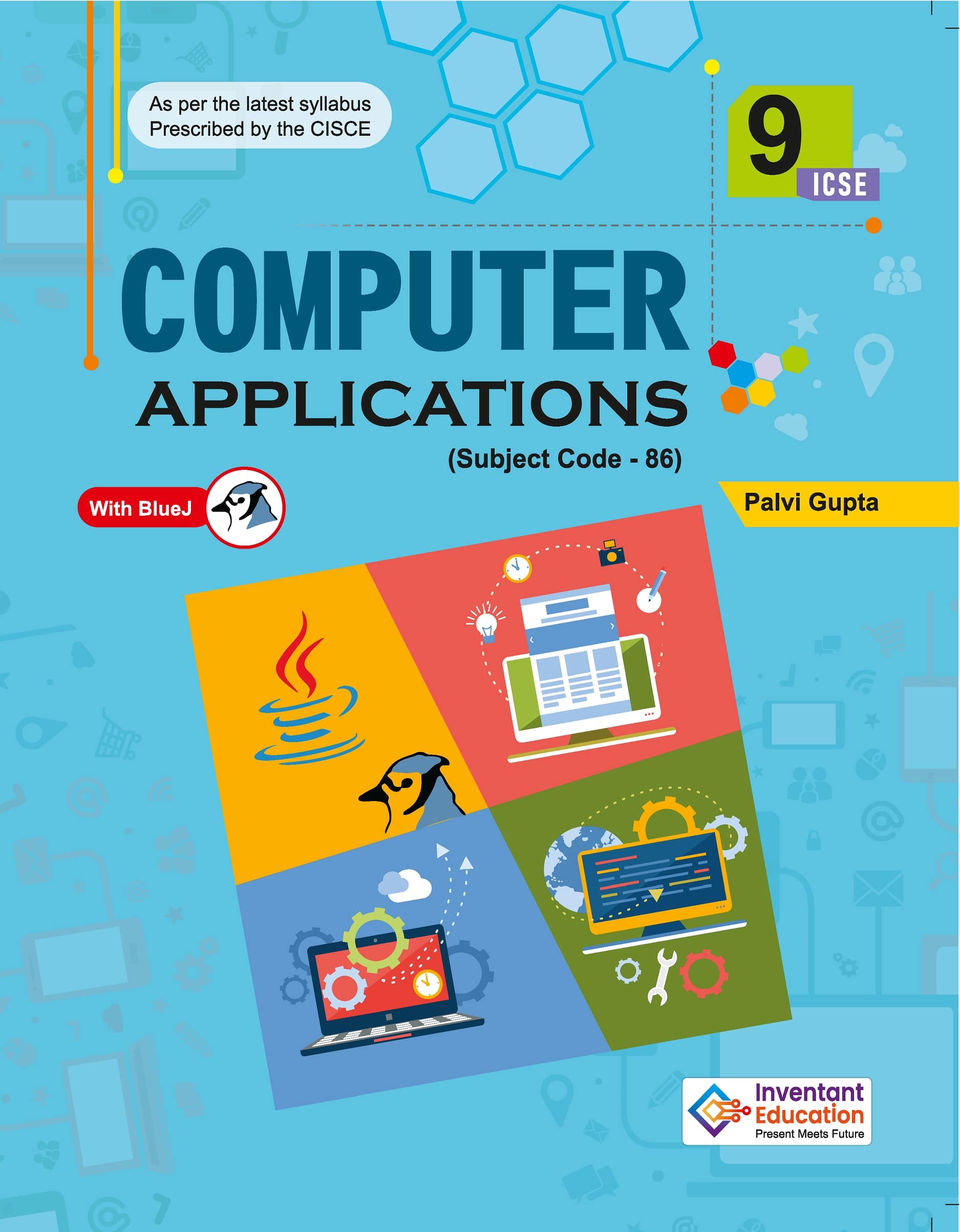
ICSE BOARD
|
CLASS 10
|
Information Technology
|
By - Palvi GuptaComputer Applications for Class 10
ISBN/SKU: 9789363527782
Key Highlights
1. Introduction to Basic Computer Concepts: The book begins with fundamental concepts. This forms a strong foundation for understanding advanced topics.
2. Object-Oriented Programming (OOP): The primary focus of the book is on Java programming, an objectoriented language. Students are introduced to the core principles of OOP, such as classes, objects, inheritance, and polymorphism, which are critical for modem software development. The book uses simple and clear examples to explain these concepts, making it easier for students to grasp.
3. Programming Basics: Students learn the syntax of Java and are guided step-by-step through writing their first programs. They are taught how to use variables, data types, operators, Iterative, nested and conditional statements to build simple applications.
4. Problem-Solving Skills: The book emphasizes logical thinking and problem-solving through coding exercises. It includes a variety of practical programming examples and challenges to encourage students to apply their knowledge in real-world scenarios. This approach not only enhances their programming skills but also improves their analytical thinking.
5. Graphical User Interface (GUI) Programming: One of the standout features of the book is its introduction to GUI programming, where students learn how to create interactive applications. They are guided through the basics of designing user interfaces with buttons, text fields, and other controls, providing them with the tools to create functional and user-friendly programs.
6. Exercises and Projects: At the end of each chapter, there are exercises that include both theoretical and practical questions to test students' understanding of the material. Additionally, project work is assigned to help students consolidate their learning by developing larger, more complex applications. These projects often mimic real-world problems, fostering creativity and deeper learning.
7. ICSE Examination Preparation: The book is structured to help students prepare effectively for the ICSE exams. It includes model questions, Java Programming, and previous year's exam questions, providing ample practice for students to master the format and style of the exam.
8. Leaming Objectives: Clearly define what students will learn by the end of each chapter.
9. Definition: Provide clear and concise definitions of important terms to help students understand concepts better. It should be simple, concise, and relevant to the topic at hand.
10. Extra Time: Suggested activities or extensions for students who finish early or need additional challenges. It ensures that fast learners stay engaged and deepen their knowledge.
11. Know More: Provide additional facts or insights to encourage deeper understanding of the topic. This section spark curiosity and provide context or trivia related to the topic.
12. Lab Activity: Hands-<>n exercises that allow students to apply theoretical concepts in practical scenarios. It enhances understanding by giving students the opportunity to experiment with the software.
13. Teacher Notes: Provide teachers with background information, teaching tips, and key points to emphasize during the lesson. It supports educators by offering guidance on how to deliver content effectively.
Teacher's Resource Book: Provides lesson plans and solutions to the textbook questions.
Onllne Support: Downloadable e-books (for teachers only)
I owe my success in this project to the unwavering support of my family. My husband's encouragement, my son Sidharth's joy, my parents' guidance, and my mother-in-law's understanding have all been crucial in helping me achieve this balance.
About the Book
The Class 9th and 10th ICSE Computer Applications book is designed to introduce students to the exciting and rapidly evolving world of computer science. It serves as a comprehensive guide that lays a solid foundation in programming and other essential computing concepts. The book is structured to align with the ICSE (Indian Certificate of Secondary Education) syllabus, ensuring that all relevant topics are covered systematically and in-depth, preparing students for both academic success and practical application.
About the Author
M.Tech, B.E.
(Computer Sceince & Engineering)
D.A.V: University. Jalandhar
| Category | Course Book |
| Format | Digital Book |
| Type | Course Book |
| No. of pages | 352 |
